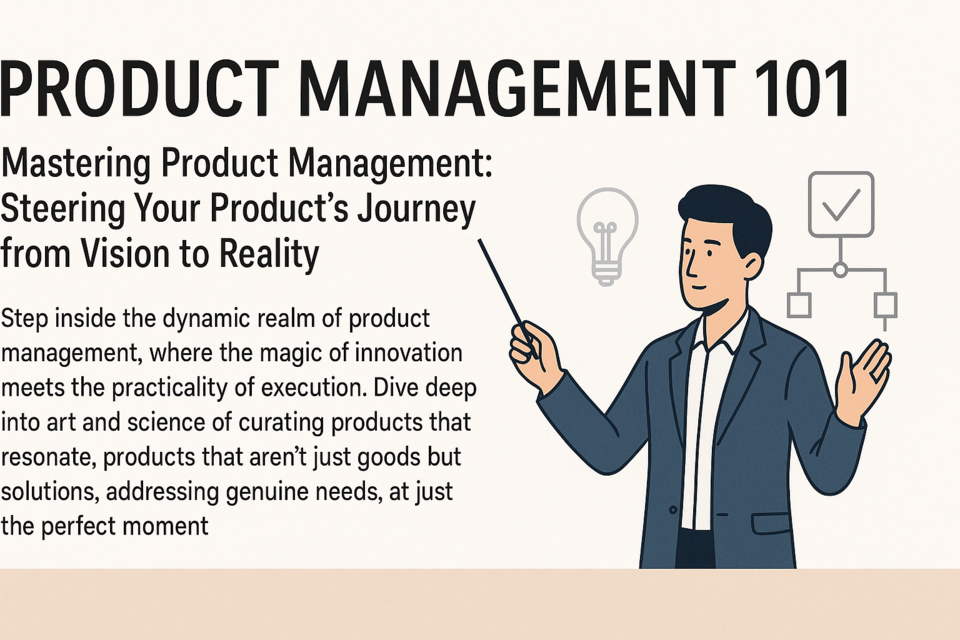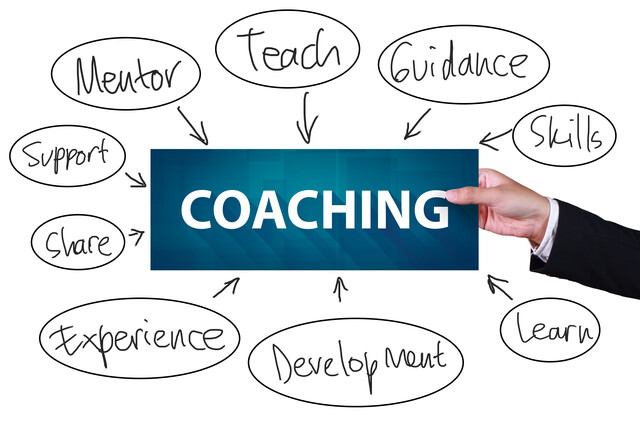This article will discuss consulting topics that don't necessarily fall under business operations, but are activities you need to know.
Successful consulting occurs when you meet the needs of your clients because you have the right mix of savvy and competence. To achieve this, you'll need the following:
-
Knowledge base in your field
-
Experience that adds value to your client
-
The ability to foster and grow relationships
-
Excellent communication
-
A dynamic plan that continually improves
-
The ability to network and properly market
-
Correctly resolving the problem
-
Providing clear expectations
-
Developing attainable goals and objectives
-
Providing attention to detail
-
Charging reasonable fees
Consulting failure occurs when the results you produce do not correlate with the strategy of the organization for which you are doing the consulting. Consulting failure may also occur where the organization is unable to implement your recommendations, such as:
-
Your clients have unrealistic expectations.
-
The consulting experience had unattainable goals and objectives.
-
The client demanded additional time or more services for the same fee.
-
A lack of leadership in the client company.
-
The client ignores or rejects your advice.
Design the solutions that best serve your client's needs, based on your abilities and competencies. As you develop your portfolio, you explain your value to clients. You want to specify your general consulting offerings, then list your custom services. For example, for typical or general consulting, you may list:
-
Corporate needs assessments
-
Value enhancement audits
-
Government agency audits
-
Due diligence audits
-
Not-for-profit audits
-
Business valuation
-
Growth design
-
Value enhancements
Then you may list some of your custom services, such as:
-
Growth management
-
Capital sourcing
-
Corporate turnaround
-
Organizational behavior
-
Lean management
Consultants are typically selected, based on how their proposal scores and ranks in terms of the needs of the project; the billing rate, based on the project budget; the availability of the consultant at the time of need; the geographic location of the consultant; and finally, any special skills the consultant may have that add value, above and beyond, the skills of any other consulting proposals.
As a consultant, once you determine your services, you want to standardize the products you offer so that the process, evaluation, and report format have an individualized style that accentuates your abilities.
Other things to be aware of
Proposal cancellation clauses help protect you, as a consultant, in the event you began working on a project and it is canceled. Typical caveats for this include:
-
A statement: the project cannot be canceled; however, it can be delayed or rescheduled, without penalty or time limit, to a mutually agreeable date and time.
-
Payments must be made in accordance with the existing payment schedule.
-
Cancellation of the project will incur no penalty if made within a specified number of days, and no services are due in the event of a cancellation.
-
Statement that the project may be canceled by either party without penalty up to a specified number of days; after those days, the client agrees to a percentage cancellation fee.
Letters of Agreement
A letter of agreement can be used to specify how interactions will occur between the client and the consultant. These types of communications are the basis for working relationships, and include information such as:
-
When meetings will occur
-
Content of the meeting
-
Discussion of the development of plans
-
Training and educational plans
-
Clarity of any questions
Telephone scripts for cold calls
On occasion, you may use telephone scripts to contact potential clients. Focus these calls on relating to the client that they are under tremendous pressure to improve profit margins, and improve areas that can benefit from potential savings. Provide them industry data that gives them a feel for where they fall within industry guidelines. Tell them some of the larger name companies you work with to make improvements, and ask if they would be interested in learning about some of the techniques you have implemented to increase their profits and improve their businesses. The same can work for e-mail.
Sample pitfalls
There are a number of pitfalls that no one talks about within the consulting industry. You may find it difficult to determine exactly who you are as a consultant. You will have difficult periods where you struggle to define your focus as a specialist or a generalist. You will have periods of time where you are emotionally challenged with balancing what you want to do, and what you need to do. You will also find yourself:
-
Struggling to limit your scope as you grow your company
-
Struggling to determine which companies you prefer to work for
-
Failing to land a potential paying client, because you were hoping for a better opportunity
-
Struggling to maintain a positive outlook, when you have submitted multiple consulting proposals and not landed a contract
-
Struggling with family interactions, as you may receive a request for consulting expertise that nets no payment (You feel the obligation to help, but it takes time, and results in no money.)
Sometimes consulting family members results in negative feelings and insults on your technical skills.
Operational tips
Here are some additional ideas you may use as you develop your consulting business.
-
Remember, networking is the key to success. Your interaction with social media and networking opportunities, such as LinkedIn, are paramount to building your network of contacts.
-
Make sure you are organized. Plan each day and realize the costs of time management.
-
Determine if additional certifications or special licensing will net additional profits. These are complementary factors that will affect your bottom line.
-
Read blogs that will help you with consulting issues tied to human intervention. You can never be too skilled with emotional intelligence or people skills.
-
Focus on a home office. This will eliminate the need to pay rent or utilities for an office space. It provides the flexibility of not having to travel, and may provide additional tax deductions.
-
Determine which activities you may want to sub-contract out, such as filling envelopes, performing Internet research, or answering phones. Activities that you can sub-contract at a lesser rate can help you gain enormous efficiency to focus on additional clients.
-
Always use detailed expense reports. There is no room on an expense report for a "miscellaneous" figure. That adds to the time it will take you to review items for tax audit, or in preparing your annual taxes. It pays to be detailed.
-
Consider working on a retainer basis. The retainer will provide you with a monthly fee for a set number of agreed-upon hours with your client. Having a retainer arrangement with multiple clients allows you to have residual income on a consistent basis. Many consultants make upwards of $3500 per month by simply having a retainer fee.
-
Your marketing and advertising expenses do not have an endless budget. Consider having your services added to consulting business directories to help generate new business.
-
Asking for referrals is a good marketing tool. When you finish consulting with the client, ask them for a referral to another organization. This will help you build mutual relations and an expanded client base from your good personal interactions.
-
Some consultants build their client base through training and public speaking opportunities. By providing consulting information at night, through free courses you can offer at your local library, you may reach other contacts in your area.
-
You may want to develop your own blog or newsletter as a means of sharing information, learning from other consultants, or developing additional clients.
Image enhancement
We have already discussed dressing for success and the presentation methods used for your consulting proposals and consulting reports. These three factors weigh largely on your public image for your consulting company. There are additional measures you can take to boost your image in the consulting arena. Consider these:
-
Leveraging your experience is one way to boost the way potential clients view your services. If you have significant experience with an industry, that promotes a certain level of expectation and the maturity of your client interactions.
-
Enhancing your education is important, but does not have to be expensive. You can enhance your educational background through certifications and training programs. These both bode well for potential clients.
-
Provide good references. The bigger and better references you can provide to potential clients, the better the potential that they may hire you for consulting.
-
Engagement activity includes any activities you can pursue to help show a level of expertise, including presentations at conferences, authorship of books, authoring white papers, or providing technical tips through social media.
-
Competence boosters include demonstrating your understanding of the consulting process, such as providing sample consulting reports.
-
Leverage of professional ideals. This includes statements of your ethics, integrity, and values when consulting.
Consider becoming certified as a management consultant
You and your clients benefit from certification as a management consultant. The testing required to become certified ensures that you are familiar with common methodologies, which include interactions with clients, ethical issues, billing, strategy development, organizational growth, implementation techniques, and business operations.
Organizations like the Institute of Management Consultants offer designations, such as the Certified Management Consultant (CMC). The benefits of being certified are that you gain significant knowledge from testing and are more familiar with the global standards of consulting competencies, project management, personal behavior, and interactions with clients.
Consider focusing on complementary methodologies, such as Six Sigma and project management.
Having a background in multiple methodologies helps to build additional skill sets with organization, time management, and efficiency. Project management is perhaps the best methodology you can use to help frame your operational work environment. Six Sigma is the best methodology you can learn to help determine the cause of problems, measuring problems, performing an analysis, developing improvements, and placing controls. The control portion of the methodology is especially useful in the management and implementation of plans for your clients.
Project management skills provide you with the ability to determine issues with your clients' strategy, quality, schedules, budget, resources, and risk. Project management skills complement a number of the aspects used in managing a consulting business, which includes integration management, scope management, time management, cost management, quality management, human resource management, communications, risk management, and shareholder management.
It is also beneficial to have a knowledge of international standards (ISO) and other regulatory or oversight bodies. Having a thorough knowledge in these areas allows you to transfer it to your clients' information, which helps them to be compliant in areas of improvement. There are keys standards under the ISO 9000 quality management standard series to provide guidance and tools for companies that want to ensure their products and services consistently meet customers' requirements, and that quality is consistently improved. ISO 9001:2008 sets the requirements of a quality management system.
These complementary methodologies help you tell if standards and expectations are met, and when business performance measures must be developed -- which include the balanced scorecard, key performance indicators (KPIs), and the underlying financial impact of customer loyalty. Performance measures allow the organization to determine how well it is operating, compared to strategic goals, benchmarks, and customer satisfaction.
Improving your competencies through complementary methodologies helps you build the culture within your clients' companies, by developing these key actions:
-
Develop the Strategic Perspective - Leaders provide their teams with a sense of purpose and direction.
-
Install Trust - Leaders should be in touch with issues and concerns of individual employees, and should provide an environment for building relationships.
-
Inspiration and Motivation - leaders focus a level of additional effort and energy that can make the difference between organizational success and failure. Every leader is charged with developing ways to inspire their employees to function at a higher level of performance.
-
Drive for Results - Leaders that do this well are not afraid to ask their employees for a higher level of performance and continually remind them of their progress relative to the goal. This behavior includes two actions -- pushing, where they "drive for results," and pulling, where they "provide inspiration."
-
Collaboration - Leaders should promote a high level of cooperation between their work groups, and create a positive and productive atmosphere. Objectives are created at a higher level with a high level of inter-group cooperation. When this occurs, energy is created and every employee enjoys the work experience.
Quality is also achieved through assessment and development of the company's quality culture. This assessment and development occurs by facilitating cultural awareness, adopting quality goals, requesting stakeholder input, developing performance measurements, rewarding performance toward quality, and creating teams to pursue continuous improvement. Achieving a quality culture includes:
-
Having a clear understanding of what quality looks like
-
Having the employees connect with the benefits of quality
-
Maintaining a clear structure and framework for quality management
-
Communicating the quality improvement plan and progress throughout the organization
-
Having a clear understanding of Quality Improvement and why it is necessary
-
Buy-in and support at all levels in the company
Competency development and complementary methodologies equal better products for your clients.
Summary Reminders and Takeaways
This article focused on additional consulting tips. There are a number of activities that constitute successful consulting. These include knowledge in your field, experience that adds value, ability to grow relationships, ability to network, correctly resolving problems, providing for their expectations, developing attainable goals, and charging reasonable fees. There are also activities that constitute consulting failure. These include that your clients have unrealistic expectations, the consulting experience had unattainable goals, the client demanded additional time for the same fee, a lack of leadership in the client company, or the client ignores your advice.
Potential clients rank consultants, based on their abilities, in terms of the needs of the organization. You should also be aware of proposal cancellation clauses, content of the letter of agreement, and the necessity to have telephone scripts when cold calling potential clients.
Some of the potential pitfalls for consultants include struggling to limit your scope, failing to land potential clients as you wait for better opportunities, struggling to maintain a positive outlook when you have not been awarded contracts, and struggling with family interactions.
There are a number of additional operational tips that can help you as a consultant. Remember, networking is the key to success; make sure you are organized; develop a home office, if possible; determine any aspects you can sub-contract; always maintain detailed expense reports; consider working on a retainer basis; find thrifty marketing and advertising opportunities; and develop your own blog or newsletter to share information and possibly develop additional clients.
Always strive to enhance your professional image, including leveraging your experience, enhancing your education, providing good references, engaging in activities, boosting your competence, and leveraging professional ideals. You should also consider becoming certified as a management consultant and training and education for complementary methodologies such as Six Sigma and project management. Complementary methodologies will help you tell if standards and expectations are met in terms of business indicators.































